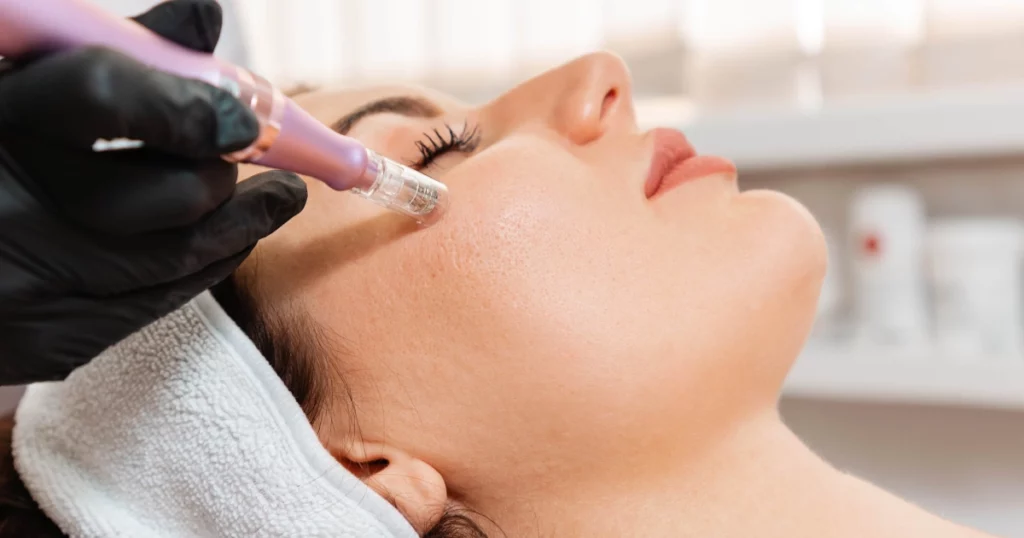Microneedling is a minimally invasive cosmetic procedure that uses tiny, sterile needles to create controlled micro-injuries in the skin. This stimulates the body’s natural healing process, leading to the production of collagen and elastin. The result is smoother, firmer, and more youthful-looking skin. As the popularity of Microneedling in Dubai continues to rise, many individuals are curious about whether this treatment is suitable for all skin types, including sensitive, oily, or darker-toned skin.
How Microneedling Works on Different Skin Types
Microneedling works by triggering the body’s natural repair mechanisms, which are universal regardless of skin type. However, the approach, needle depth, and post-treatment care may need to be adjusted based on the skin’s characteristics to ensure optimal results and safety.
Collagen Stimulation Across Skin Types
Collagen and elastin production is the primary benefit of microneedling. All skin types respond to this stimulation, although sensitive or reactive skin may require gentler treatment to prevent excessive redness or irritation.
Enhanced Product Absorption
The microchannels formed during microneedling allow topical products to penetrate deeply, improving the effectiveness of serums and treatments. This benefit applies to all skin types, whether oily, dry, or combination.
Benefits for Different Skin Types
Normal Skin
Normal skin generally responds well to microneedling with minimal downtime. Improvements in texture, firmness, and tone are noticeable after a few sessions.
Sensitive Skin
Microneedling can be safely performed on sensitive skin when the procedure is customized. Redness and mild swelling may occur but typically subside within a few days. Patch testing is recommended to assess tolerance.
Oily and Acne-Prone Skin
Microneedling can help reduce excess oil production and improve acne scars. By stimulating collagen, it promotes smoother skin while minimizing the appearance of large pores.
Dry Skin
For dry skin, microneedling boosts hydration by improving the absorption of serums and moisturizers. This enhances overall skin health and provides a natural glow.
Darker Skin Tones
Individuals with darker skin tones can safely undergo microneedling, provided a professional adjusts needle depth and technique. The treatment can help reduce hyperpigmentation without causing post-inflammatory darkening.
Recommended Treatment Approach
Professional Supervision
Microneedling should always be performed by trained professionals who understand the nuances of each skin type. Customized needle depths, treatment frequency, and complementary products ensure safety and effectiveness.
Multiple Sessions for Best Results
While most skin types respond well to microneedling, multiple sessions are often required to achieve optimal improvements in texture, tone, and firmness.
Proper Aftercare
Aftercare is essential for all skin types. Recommendations include:
- Gentle cleansing
- Hydration and moisturization
- Sun protection to prevent pigmentation
- Avoiding harsh chemicals and exfoliants
Potential
Side effects are generally mild and temporary, including:
- Redness or swelling
- Mild irritation or tenderness
- Slight flaking or dryness
These effects typically resolve within a few days and do not pose long-term risks when proper care is followed.
Who Should Avoid Microneedling
Certain conditions may make microneedling unsuitable, including:
- Active skin infections or open wounds
- Severe eczema or psoriasis flare-ups
- Skin rashes or irritation
A professional assessment ensures the treatment is appropriate and safe for every individual.
Final Thoughts on Safety for All Skin Types
Microneedling is a safe and effective procedure for nearly all skin types, from sensitive to oily and darker tones. Its minimally invasive approach, combined with the ability to stimulate collagen and elastin production, makes it suitable for improving skin texture, tone, and overall health. For those seeking rejuvenation in Dubai, Microneedling Dubai has become a trusted choice for delivering visible results while accommodating diverse skin needs.






Comments